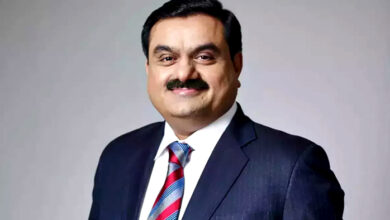Credit Suisse gets a new CEO and starts a strategy review after a big loss in Q2.

Zurich (Reuters) -Credit Suisse Group AG named Ulrich Koerner, the head of asset management, as its new CEO on Wednesday. The bank also said it plans to cut costs as part of a strategic review. This is the latest step the bank is taking to get back on its feet after a series of scandals and losses.
The announcement comes after months of pressure on the current CEO, Thomas Gottstein, to make a move. Gottstein has been in charge for two years, during which time the company’s shares have dropped and some investors have called for Gottstein to be replaced.
The bank has said that 2022 will be a “transition” year. This is because expensive scandals have led to a near-total reshuffle of management and a restructuring that aims to reduce risk-taking, especially in its investment bank, while increasing wealth management.
Credit Suisse lost $1.65 billion from April to June, which was much more than the expected loss of 206 million Swiss francs. The company has tried to stop rumours that it could be bought out or broken up as the sector consolidates.
When asked if Credit Suisse might add more capital after another quarterly loss, Chief Financial Officer David Mathers said on Wednesday that the Swiss bank has enough money.
“I’ve been CFO for 12 years, and I’ve seen much, much, much lower capital ratios than this,” he said. “This is still one of the highest capital ratios, though,” he added, noting that the bank wanted to keep its CET1 capital ratio between 13% and 14% in the second half of the year, even though the future was uncertain.
Its CET1 equity ratio was 13.5 percent of risk-weighted assets, meeting its short-term goal of 13.5 percent and coming close to the market’s expectation of 13.6 percent.That was lower than its goal of more than 14 percent by 2024 and its CET1 ratio of 13.8 percent in the first quarter.
Mr. Gottstein said, “Our results for the second quarter of 2022 are disappointing, especially in the Investment Bank. Higher litigation provisions and other adjusting items also had an effect on our results. “
Gottstein’s replacement is Koerner, who runs the asset management division at Credit Suisse. He came back to the bank after working at UBS Group AG (SIX:UBSG), where he was most recently an advisor to the CEO from 2019 to 2020. From 2014 to 2019, he was in charge of UBS Asset Management. He was also a top manager at Credit Suisse Financial Services, where he ran the Swiss business.
In June, Credit Suisse executives said that the company might “temper” some of its most important growth plans in wealth management while it focuses on reducing risk and improving technology.
In Switzerland, Koerner is known as an expert on restructuring. He used to work for McKinsey.
Based on the first half of this year’s numbers, the bank now wants to cut its cost base to less than 15.5 billion francs in the medium term. This is down from an annualised 16.8 billion francs this year. The third-quarter results were supposed to give more information about this.
It had said before that it wanted to save money faster by speeding up measures that were put in place as part of its reorganisation in November. These measures were meant to save between 1 billion and 1.5 billion Swiss francs per year in structural costs by 2024.
It has said that updating technology could save about 800 million francs in costs over the next few years, including 200 million francs in each of 2022 and 2023.
Mathers said that the group as a whole, not just the IT business, would be affected by the plan to cut costs. He gave no details on potential job cuts.
As part of the changes to the investment bank, Credit Suisse named David Miller and Michael Ebert as co-heads of the unit. The current head, Christian Meissner, will focus on the strategic review.
Analyst Andreas Venditti at Vontobel wrote in a client note that Credit Suisse “will need time to solve its problems and regain the trust of all stakeholders over the next few years.” He also said that the investment bank review is the right thing for Koerner to focus on.
BALANCE SHEET
Reuters reported in May, citing two people with knowledge of the situation, that Credit Suisse was in the early stages of weighing options to boost its capital after a string of losses had reduced its financial buffers.
A cash infusion would help the bank get back on its feet after it lost billions of dollars in 2021 and had to deal with expensive legal problems. The best choice was to sell shares to some of its biggest investors, but Credit Suisse has not ruled out going to all shareholders, the people said.
A sale of a business, like Credit Suisse’s asset management division, was also a possibility, but the bank hadn’t decided what to do, the people said.
On Wednesday, the bank said it was still committed to managing assets, but it was looking at strategic options for its securitized products business to bring in capital from outside sources.
SCANDALS
The bank is tightening its controls because its swashbuckling business style led to billions of dollars in losses from risk management and compliance mistakes.
In March 2021, the bank took two big hits: a $5.5 billion loss from the default of the U.S. family office Archegos Capital Management and the closing of $10 billion of supply chain finance funds that were tied to the collapse of the British finance company Greensill.
In Switzerland’s first criminal trial of one of its big banks, Credit Suisse, was found guilty last month of not stopping a Bulgarian drug trafficking gang from laundering money. It wants to change the decision.
This year, the bank’s shares have dropped more than 40% and hit a low of less than 5 francs in the middle of July. Refinitiv data showed that it is worth less than 14 billion Swiss francs on the stock market. After the morning bell, the stock went up by 0.4%, but it quickly went down by 1.1%.
On Tuesday, Swiss competitor UBS reported a second-quarter profit of $2.1 billion, which was less than expected because the turmoil in the financial markets hurt its investment banking and wealth management businesses.
$1 is worth 0.9614 Swiss francs.
Credit Suisse gets a new CEO and starts a strategy review after a big loss in the second quarter.





